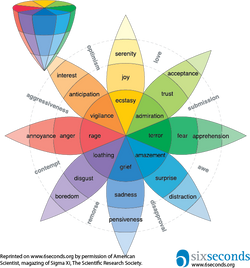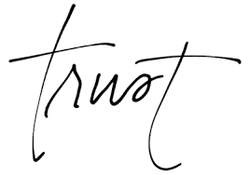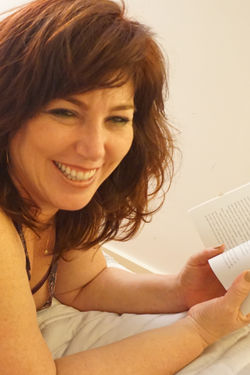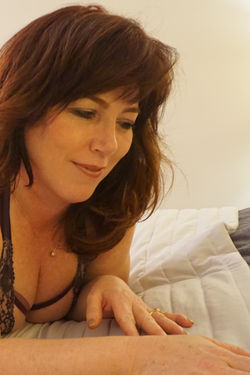
About Amy
My Philosophy

My Story
People want to be connected--it is genetically and evolutionarily based--and a lot of the time, we don't know how to do it. We especially don't know how to do it when we either came from a family of origin that was hard, or our partner came from one that was hard. It is hard when people are attracted to one another but don't have much in common, and worse when they don't KNOW they don't have much in common. It is hard when values are not in alignment. It is hard when communication styles and coping strategies are dissimilar. It is especially hard after couples have children. I am a social science researcher with a knack for guiding difficult conversations in relationship. I have 25 years' experience and education in human development along the life span, as well as an educational background that lends itself to understanding some of the more challenging aspects of family life. I teach adults "to adult."
Yes, "to adult" as a verb. If you can think it, you can become it.
I believe in:
Integrity: personal accountability and agency from individuals. Making choices from a personally empowered space, and being aligned with personal values and beliefs. If you don't know what you believe in or where your moral compass is, it is difficult to have integrity.
Dignity: each individual deserves to be treated with respect and has worth. When we come from a place that believes our own dignity, it is much easier to treat others in a dignified manner.
Verity: being truthful begins within oneself, and challenging personal belief systems that may be internally "true," but not necessarily true for others. When we know our worth, have agency, are accountable for our thoughts and actions, and treat others in a dignified way, we are empowered to make better decisions for ourselves and for a partner we may claim to love.
Love, Sex, & Conflict: Love is going to include the entire spectrum of emotions, especially in intimate and/or sexual partnerships. Frolic can turn into fighting once the oxytocin wears off, and there is where intimacy is or is not built. Ideally, it was built beforehand, but, alas, it frequently is not.
I believe in the sacred and the divine when it comes to sex. Is it this way for every body, and does every body want to relate to the Divine? It can be, and no. In my practice, I will get a sense of what you want to work on and then we will work hands-on through experiential somatic play and exercises. This can be done individually, or as a couple. The goal is frequently about becoming more embodied and in balance within each individual, and not the image of what the individual should be.
I am an intimacy and conflict consultant. That means I work with individuals and couples on how to deepen intimacy, how to fight, and how to resolve sexual issues. My family consulting and advising is intended to empower people to empower themselves, to live more meaningful lives, and to identify patterns of behavior and thoughts that interact positively or negatively with others within the dynamic.
In my spare time, I'm a social science researcher. The core focus of my research has been Family & Family Systems, Identity Formation, and Stress & Trauma, particularly as stress and trauma pertain to young people and the outcomes of changed neurochemistry in the adult male brain.
In 1996, I began working with families with boys who had "behavioral" issues, and in 2000, I founded a school that provided support to families with babies through 12th grade children. The marriage of these interests, education, and experience puts me in the unique position to consult with individuals, couples, and families to deepen healthy intimacy and to develop language for feelings, conflict, and productive communication in order to find workable solutions to stress and strife. This involves identifying internal differences in needs and wants, and differences between individuals of needs and wants.
My current research is in Male Trauma, Desire & Sexuality. While working as an educator, I found that boys--even as young as primary school, and certainly by middle school and high school--sometimes felt marginalized, problematic, dirty, or in some other way pigeon-holed into a way of being that was harming their hearts, their sexuality, and their ability to relate first as human beings, and then as the masculine energy that they were told to suppress unless using an outlet such as sports. This manifests as shame, which is enculturated and transgenerationally transmitted.
It's time for a new era.
Looking at the lens of Identity Formation as it pertains to pre-adulthood trauma, and the transgenerational legacy formation from these traumas, it is imperative that we study and transform the way young boys’ identities are being shaped today--it is why I began working with men, women, and couples.
I do training on Trauma and Identity Formation, how trauma shapes boys in particular, and outcomes for boys with adverse childhood and adolescent conditions in adulthood. What we are able to understand and name becomes a pathway for healing and rectifying former chosen routes of thoughts and behavior. It is with this in mind that my practice and lecture series go to a broader audience around the world to provide peacemaking, love-making, and different healing and personal empowerment themes for like-minded and like-hearted people.
I graduated from the University of Washington with a Bachelor’s in Integrated Social Sciences, attended the Chicago School of Professional Psychology in Behavioral Economics. I am a Somatica Institute trained and certified sexological and relationship advisor, and also hold certification in the State of Washington as a trained and certificated mediator and conflict coach. Currently, I am attending graduate school at Harvard, with a focus on positive psychology and CBT.
My Training
Certified Sexological Somatic Advisor
Somatica Institute, 2017
Trained & Certificated Mediator
Dispute Resolution Centers of Thurston, King, Snohomish & Tri-Counties, 2016, 2017
MLA, Psychology
Harvard University (in progress)
Master's coursework, Psychology/Behavioral Economics
Chicago School of Professional Psychology (2016-2017)
Bachelor's of Integrated Social Sciences
University of Washington
 |  |
|---|---|
 |  |
 |  |
 |  |
 |  |
 |  |
 |  |
 |  |
 |  |
 |  |
 |  |
 |  |
 |  |
 |  |
 |  |
 |
